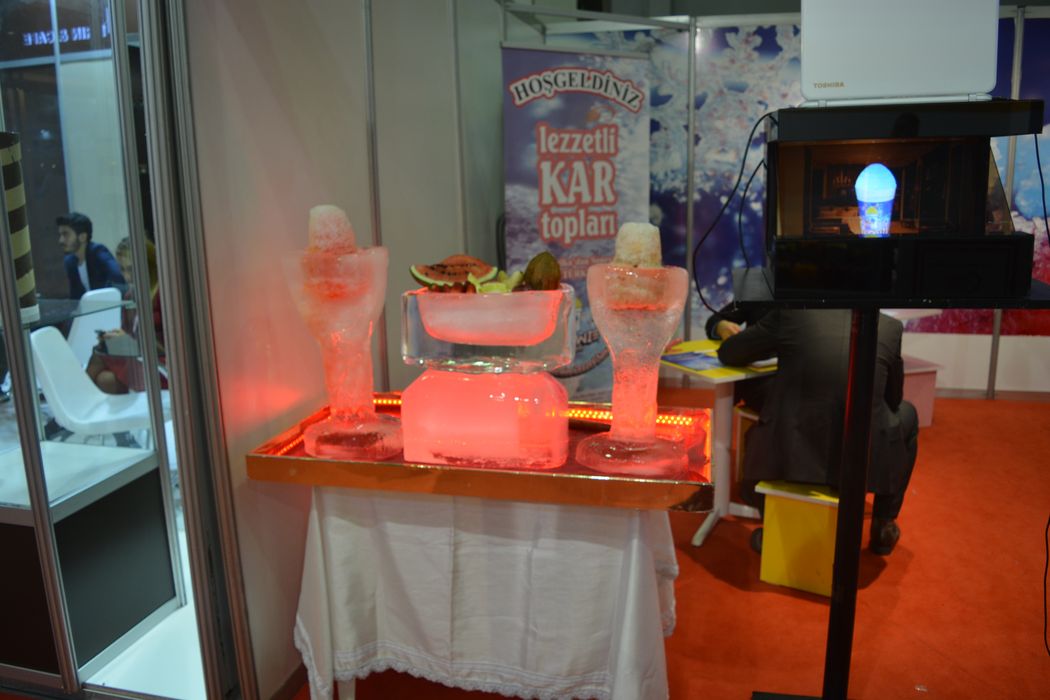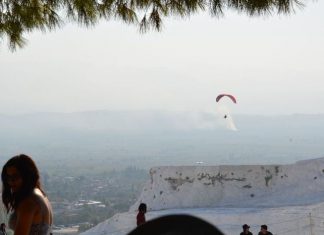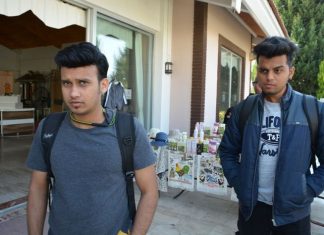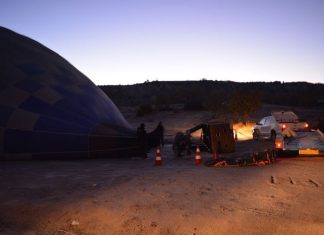Ibn Battuta leaves Basra by boat
At Basra I embarked in a sumbuq, that is a small boat, for Ubulla, which lies ten miles distant. One travels between a constant succession of orchards and palm-groves both to right and left, with merchants sitting in the shade of the trees selling bread, fish, dates, milk and fruit. Ubulla was formerly a large town, frequented by merchants from India and Firs, but it fell into decay and is now a village.
Ibn Battuta describes the city of Baghdad.
Thence we travelled to Baghdad, the Abode of Peace and Capital of Islam. Here there are two bridges like that at Hilla on which the people promenade night and day, both men and women. The town has eleven cathedral mosques, eight on the right bank and three on the left, together with very many other mosques and madrasas, only the latter are all in ruins.
The baths at Baghdad are numerous and excellently constructed, most of them being painted with pitch, which has the appearance of black marble. This pitch is brought from a spring between Kufa and Basra, from which it flows continually. It gathers at the sides of the spring like clay and is shovelled up and brought to Baghdad.
Each establishment has a large number of private bathrooms, every one of which has also a wash-basin in the corner, with two taps supplying hot and cold water. Every bather is given three towels, one to wear round his waist when he goes in, another to wear round his waist when he comes out, and the third to dry himself with. In no town other than Baghdad have I seen all this elaborate arrangement, though some other towns approach it in this respect.
The western part of Baghdad was the earliest to be built, but it is now for the most part in ruins. In spite of that there remain in it still thirteen quarters, each like a city in itself and possessing two or three baths. The hospital (maristan) is a vast ruined edifice, of which only vestiges remain.
The eastern part has an abundance of bazaars, the largest of which is called the Tuesday bazaar. On this side there are no fruit trees, but all the fruit is brought from the western side, where there are orchards and gardens.
Ibn Battuta leaves Baghdad for Persia and the city of Tabriz
I left Baghdad with the mahalla of Sultan Abu Sa’id, on purpose to see the way in which the king’s marches are conducted and travelled with it for ten days, thereafter accompanying one of the amirs to the town of Tabriz.
Read More about Ibn Battuta part 24








